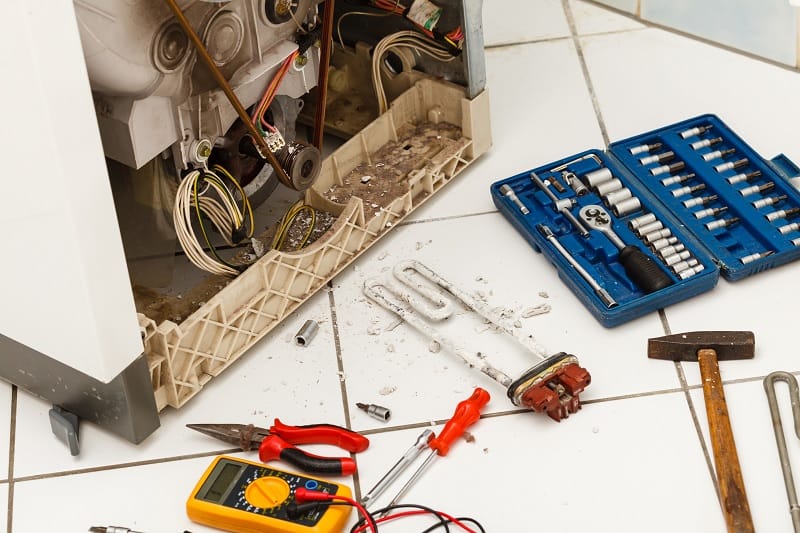However ‘quiet’ a washing machine is built to be, the sound of it running still won’t be too pleasant.
But some washing machines are louder than others and this could be a sign that something is wrong, or your machine could be in need of repair or even replacement.
Don’t ignore it if your machine doesn’t sound like it should, especially during the spin part of a wash cycle!
Reasons Your Washing Machine Might Be Noisy
A washing machine’s noise levels will normally fall between 47 dB and 67 dB on average.
Washing machines usually produce more than 50 dB of noise during the wash cycle, and anything below that would be considered a quiet model (see the quietest washing machines here).
There are many reasons a washing machine can be noisy whether it’s just because you need a new one or you could be overfilling it.
Let’s take a look at some of the main reasons:
1. Brush motors
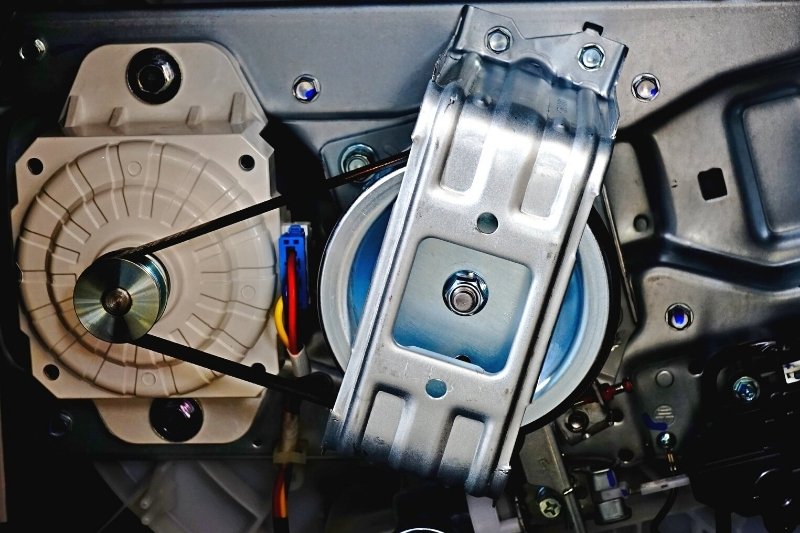
A lot of older washing machines use a carbon brush motor which can be a lot noisier than the more modern brushless motors, that work using magnets, or inverter motors.
The brushes in a motor wear out over time and they could last anywhere between 2-10 years, depending on how frequently you use your machine.
If your machine is a bit older and you know it does not have a brushless motor, then it could be time to replace the brushes.
2. Wonky floors or an unbalanced machine
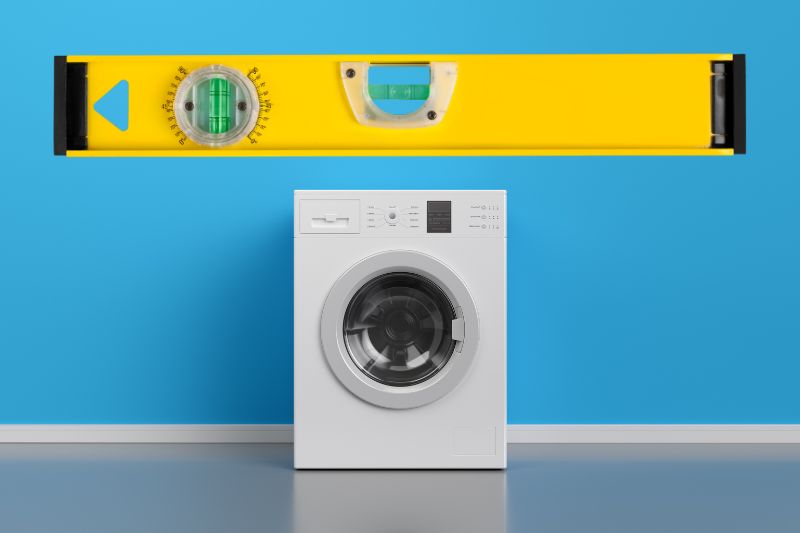
If your machine is not placed on a flat surface or if the feet have not been adjusted to keep it steady, the noise could be from the movement of the actual machine during a cycle.
With some washing machines spinning at 1200-1400 rpm, machines need to be as sturdy as possible to ensure movement and vibrations are limited.
3. Overfilled drum
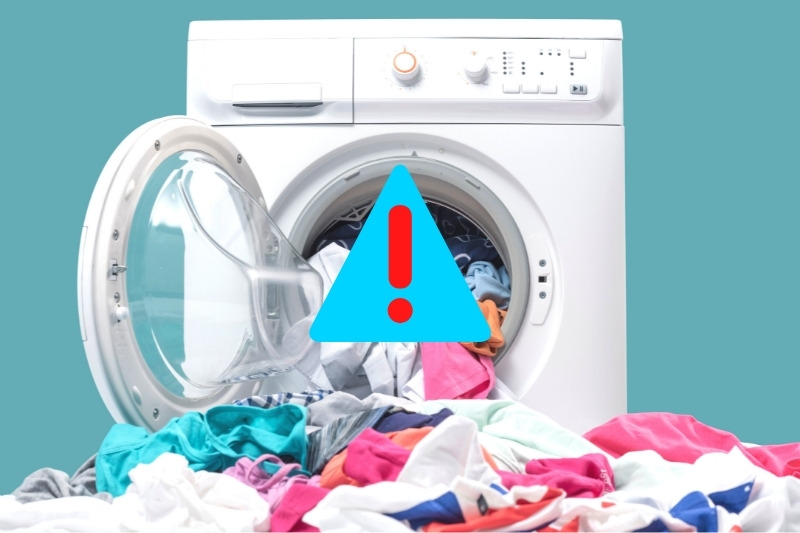
Overfilling your washing machine drum can cause it to struggle a bit during a spin cycle, not to mention that your laundry won’t be getting the best wash AND you could be adding to your energy bills.
Overfilling the drum too frequently could lead to long term problems which will need fixing.
For example, the bearings can wear out quicker and the drum could get damaged to the point of needing replacing.
4. Loose objects (e.g. from pockets)

Loose items inside the drum can be the cause of some noises in a washing machine.
Coins can fall out of pockets and buttons can come loose during a wash and they can become lodged or continue to clack around in the drum each time the washer is on.
Similarly, the underwiring from a bra could have come loose and might be wedged into one of the drum holes or stuck between the tub and the drum.
If this is the case, these are often super easy fixes that might not even require an engineer to come out, as you can do them yourself.
5. Old machine or broken parts
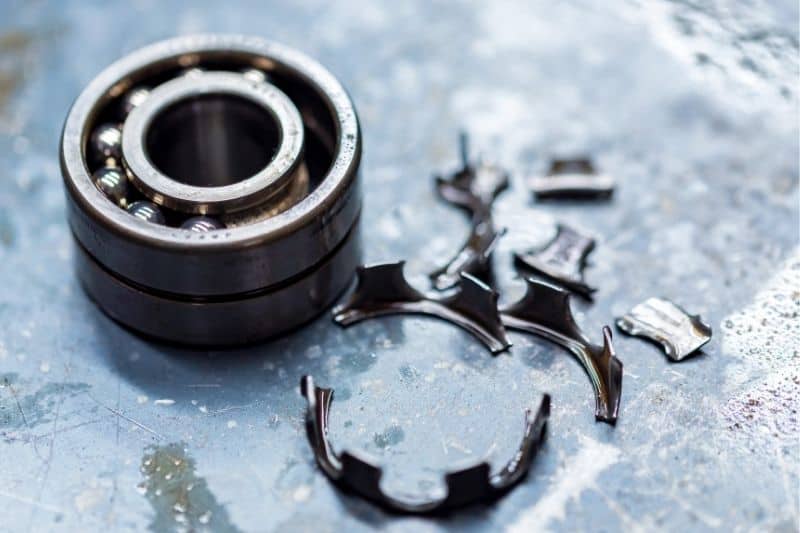
A super noisy machine could mean that it’s time to replace a part of it or time to replace the entire machine.
Some fixes can actually be done without calling out the engineer, but others will definitely require some professional help.
Worn drum bearings
You can check your drum for noise by spinning it by hand as fast as you can.
If any excessive noises occur, it could be a sign that the bearings are worn.
To double check that this is the case, you may have to remove the drive belt and spin it again, as sound with the belt on, could mean a problem with the motor.
Squeaking noises could mean that the bearings need some lubrication and a grinding noise would indicate that the bearings are falling apart.
DIY rating: Call the engineer (newer models are much more difficult to replace the bearings by yourself)
Broken motor coupling
This piece in a washing machine ensures that the drum rotates smoothly but is built to break if the washing machine is overloaded, so as not to damage the motor or transmission.
If this piece is broken, you will hear a loud noise during the spin cycle.
DIY rating: Can probably be fixed on your own (but ask for help if you are unsure)
Worn drum belt
The belt on your washing machine drum can wear out over time, but it is pretty cheap to purchase a new one online and relatively easy to replace yourself.
The noise caused by a worn drum belt can sound very similar to the sound of worn bearings, so if in doubt, remove the belt and spin the drum manually.
DIY rating: Can probably be fixed on your own (but ask for help if you are unsure)
Damaged drum or drum spider
Damage such as cracking can occur to the drum itself or to the drum spider which holds the drum in place.
Both of these will mean there is more movement during a cycle and would definitely cause a fair amount of noise.
Listen out for a tapping noise, as this can hint at a problem with the drum or drum spider.
DIY rating: Call the engineer (these parts will need replacing)
Blocked pump or pump filter
If loose objects get into these parts of the washing machine, you may find that there is a lot of noise during the time your machine is draining.
A clogged drain pump needs to be removed and emptied of any debris.
DIY rating: Pretty easy to fix yourself
Weakened shock absorbers
Shock absorbers are used to keep the tub central during spin cycles, so if they are weakened over time, there will be noise created from movement inside the machine.
These can be replaced relatively easily with the correct tools.
DIY rating: Can be done by yourself (but it requires quite a few tools and some hazards)
Loose or broken concrete
Most washing machines contain concrete blocks which act as weights to keep the machine from moving around.
These blocks are usually pretty secure, but there are sometimes cases where they have become broken or loose which can cause irreversible damage to your washing machine.
DIY rating: Call the engineer (these parts will need replacing and the engineer can assess any further damage that may have been caused)
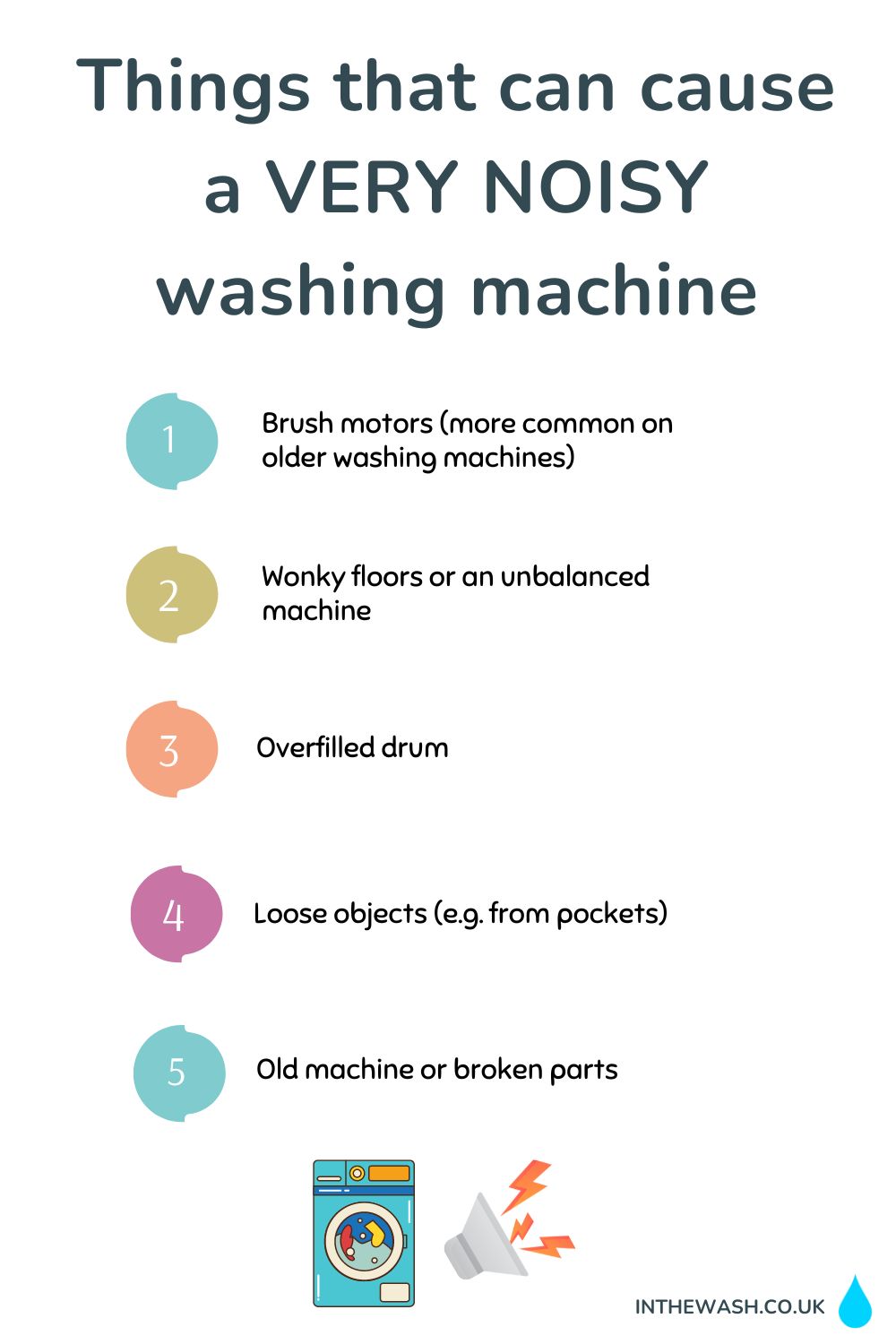
Conclusion
Although some repairs can be done with the help of an instructional video or by consulting your washing machine’s manual if you are at all unsure, you should definitely enlist the help of a professional to carry out repairs on your washing machine.
Super noisy washing machines or a suspect sound coming from them should not be ignored—you could save yourself a huge repair bill or worse, replacing the entire machine!
If it comes to that, see our guide to the best washing machines available in the UK.

In The Wash is your guide to the best laundry and cleaning products, tips and tricks. Our mission is to solve the UK’s cleaning and laundry dilemmas!
